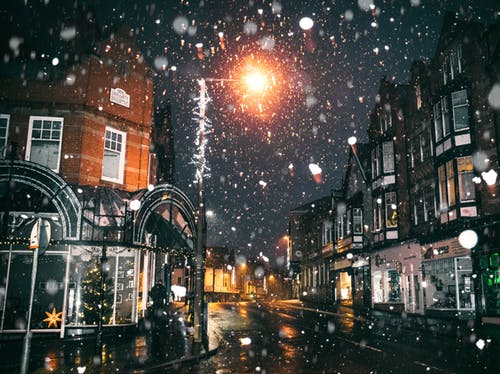
17 Holidays in December That Aren’t Christmas
Across the World, there are 37 Holidays happening in the month of December
Ah, ’tis the season to be merry, stress out over expensive gift lists, nitpick school plays, become senselessly enraged over coffee cup designs.
Similar to how young only children suddenly find themselves with siblings, some individuals used to seeing their own holidays and traditions reflected in all aspects of popular can react poorly when that situation changes. Initial feelings of upset at having to suddenly share time and resources and attention, whether from your parents or society, are normal and perfectly natural. What isn’t natural is grown adults spending ten years creating an internet campaign against coffee cups.

Why I Say “Happy Holidays”
We live in a multicultural world. The age of the internet and social media gives us access to cultures and peoples and customs from around the globe!
These holidays come from different religions, places and cultures and, in addition to being occasions of joy to be shared, provide us an opportunity to learn and explore new culture traditions. So here are some (not all) of the December Holidays from around the world:
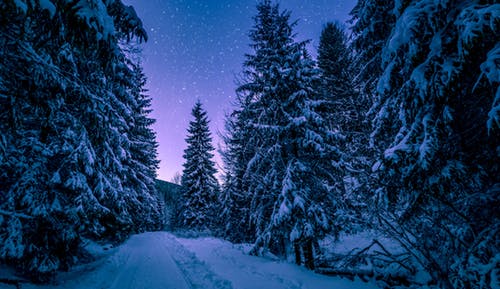
Chalica – First Week of December
Celebrated by some Unitarian Universalists, this relatively new holiday began in 2005. There is also a seven-week version of the same holiday celebrated in January. Both follow the same basic principles. On each of the seven nights (or weeks), a different principle of the church is honored by reading it allowed, lighting a chalice, and performing acts, such as donating or volunteering, to a cause that honors that principle.
Bodhi – December 8th

Celebrated in Buddhism as the Day of Enlightenment, or the moment in which Siddhartha Gautama (the Buddha) achieved Enlightenment. From there he would go on to teach millions of others about his path to peace and higher meaning.
Human Rights Day – December 10th
A non-religious international holiday devoted to the celebration and protection of Human Rights. Many charitable organizations will host either volunteer campaigns or donation drives to help celebrate this day.
Salgirah – December 13th
A celebration by Nizari Isma’ilism, a small denomination of Shia Muslims, to honor their Imam (holy leader) Aga Khan IV. Because this is a small subgroup of a larger religion, it is rarely heard of in America but is commonly practiced in the middle east.
Lucia

Celebrated in a number of countries, this Italian saint is particularly honored in Sweden. Young girls wear white gowns, crowns of candles, and bring sweet buns to their parents and others in their community.
The holiday brings light and warmth to cold winter nights.
Saturnalia – December 17th to 23rd
The Winter Solstice has been celebrated almost as soon as human beings were capable of plotting time via the movement of the moon and the stars. Versions of this holiday exist across the globe, but the Roman variant includes a week-long celebration of feasts and festivities before the big night!
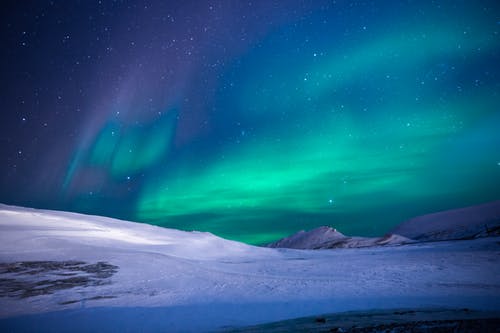
Modraniht
Also called Mothers Night, the Saxon celebration of the Winter Solstice focused on rebirth and pays homage to female deities.
Pancha Ganapati – December 21st to 25th

A Five-day long Hindu festival honoring the God Ganesha. The holiday was created by an American Siddha Yogi and Shaivism Guru in the 1980’s to provide Hindu’s in America a way to express their faith. Ganesha is the God of New Beginnings, Success, and Wisdom, which makes his celebration at the dawning of the new year all the more important. Ganesha is part Elephant and is one of the best known and most worshiped Hindu Gods.
Yule – December 21st
The Pagan winter solstice was a practiced holiday across many religions, on the longest night of the year, and the turning point at which they days stopped shrinking and began growing longer again. It is still honored in some way or another throughout Europe and America. ‘Yule Logs’, wreaths, and even Christmas trees all derive from this ancient holiday. In Sweden, Christmas is still generally referred to as ‘Jul’ (pronounced ‘yule’) and involved images of goats and other Norse traditions. Even though versions of these traditions exist in Christianity, modern Pagans around the world still honor the holiday in its original form.
Human Light – December 23rd
The Humanist Network in New Jersey created this holiday in celebration of “a Humanist’s vision of a good future”.
Dongzhi Festivel
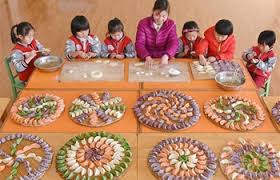
The East Asian celebration of Winter is celebrated on or around the winter solstice in China, Korea, and Japan. The holiday is rooted in the ancient concept of Yin and Yang and the idea of balance within the universe.
It is one of the most important holidays or festivals celebrated in Chinese and East Asian cultures. A key feature of this holiday is the Dongzhi tang yuan, sweet dumplings served in ginger syrup.
Newtonmas – December 25th
A Christmas alternative celebrated by some atheists and agnostics to mark the birthday of one of history’s most significant scientific figures, Sir Isaac Newton.
Kwanzaa – December 26th
A pan African religious celebration originating in the US. The holiday was created by University professor Maulana Karenga in 1966 to honor African heritage and African American culture. The holiday draws from dozens of different cultures and religions across Africa. Most African Americans are unable to trace their cultural or genealogical origins due to the forced diaspora of the early American slave trade. So Kwanzaa honors all those of African roots and ancestry. Kwanzaa has seven core principles, one of which is honored each night before the entire celebration ends in a feast and exchanging of gifts on January 1st.
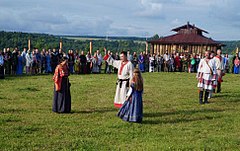
Koliada
A Slavic winter festival celebrated in late December with parades and singers. Loosely affiliated, but not attached, to the winter solstice. The visiting performers often receive gifts.
Elements of this tradition were later incorporated into Christianity, including the parades and gifts. However, Pagans in Eastern Europe still celebrate the festival in its original form.
Boxing Day
Celebrated across the UK and its former colonies, Boxing Day is a time-honored tradition for many Brits. Banks and shops are shut (although some of that is changing) and you are generally expected to remain at home and spend time together. The name originates from a ‘Christmas Box’ or a small gift or present given to local tradespeople, errand boys, or charity’s on that day.

Hanukkah
Hanukkah may take place at any point between November and January. Because it’s dates are based on the Hebrew Calendar, the days do not always line up the same way every year with the Gregorian Calendar. The ‘Festival of Lights’ goes on for eight nights, with a new candle on the Menorah being light every evening.
Small toys or chocolate coins are often given to children, and families enjoy unique and kosher foods while spending time together and playing games.

Hogmanay – December 31st
One of my FAVORITE winter holidays, purely because of the name. Hogmanay is the Scottish New Year’s Eve. The word means both the last day of the year as well as the celebration of a new year. Traditions include gift-giving, especially to the first-foot (first guest of the new year), fireworks, and large amounts of alcohol. It probably is a good thing that both January 1st and January 2nd are days off in Scotland.
Check out this and more original content available every week at TheNerdyNanny.com by subscribing to us on Facebook or Instagram.
You can also check out Eve Daniels, author of The Nerdy Nanny books, on YouTube where she gives writing and academic advice as well as updating you on all of her latest and upcoming projects.


